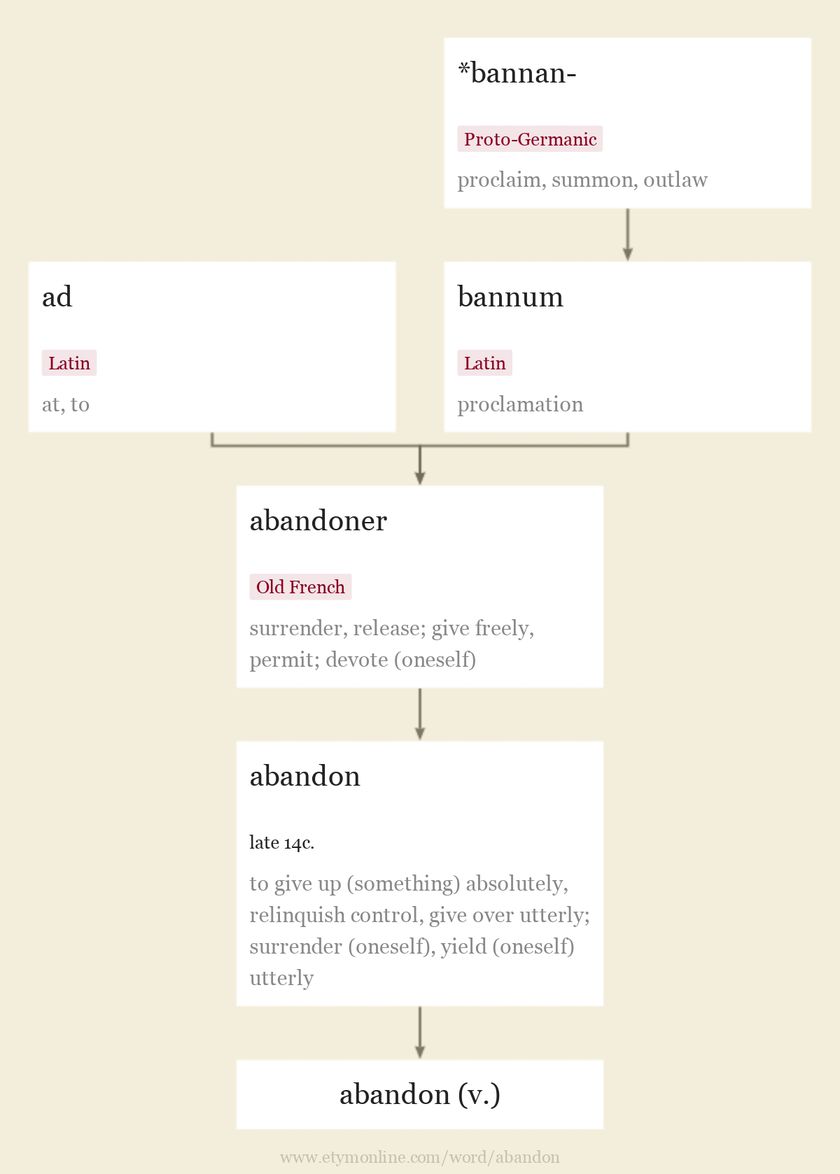abandon v.
late 14c., "
to give up (something) absolutely, relinquish control; " also "surrender (oneself), yield (oneself) utterly, " from Old French abandonner, from adverbial phrase à bandon "at will, at discretion, " from Latin bannum, "proclamation, " which is from a Frankish or other Germanic word.
late 14c., "
The Old French word was formed from the adverbial phrase à bandon "
Mettre sa forest à bandon was a feudal law phrase in the 13th cent. = mettre sa forêt à permission, i.e. to open it freely to any one for pasture or to cut wood in; hence the later sense of giving up one's rights for a time, letting go, leaving, abandoning. [Auguste Brachet, "An Etymological Dictionary of the French Language," transl. G.W. Kitchin, Oxford, 1878]
Meaning "
Etymologically, the word carries a sense of "
Again, as that which is placed at the absolute command of one party must by the same act be entirely given up by the original possessor, it was an easy step from the sense of conferring the command of a thing upon some particular person to that of renouncing all claim to authority over the subject matter, without particular reference to the party into whose hands it might come ; and thus in modern times the word has come to be used almost exclusively in the sense renunciation or desertion. [Hensleigh Wedgwood, "A Dictionary of English Etymology," 1859]

abandon
"
The noun was borrowed earlier (c. 1400) from Old French in a sense "
updated on October 13, 2021